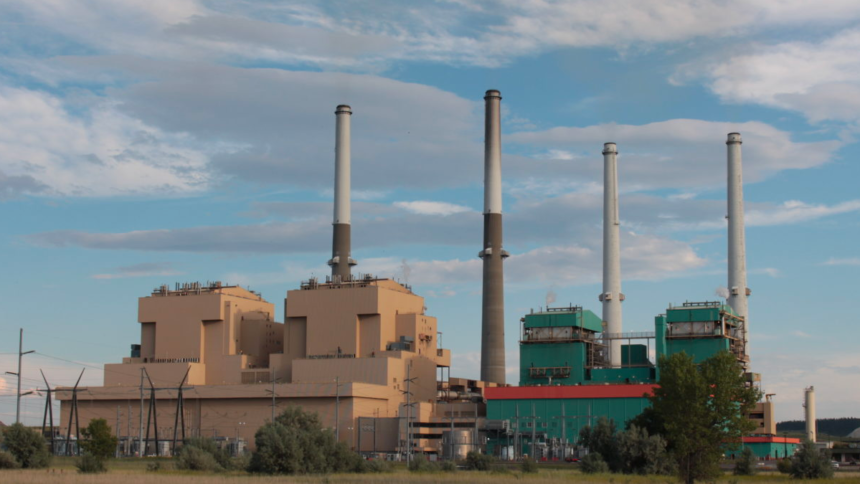Montana is one of 20 states petitioning the U.S. Supreme Court to block new climate change-oriented emissions standards from taking effect.
Montana Attorney General Austin Knudsen, along with 19 of his Republican colleagues in other states, on Tuesday asked the nation’s highest court to order an emergency stay of a rule the U.S. Environmental Protection Agency adopted in April to curtail greenhouse gases emitted by fossil fuel plants.
The EPA argues that requiring power plants to capture and sequester their emissions will help the United States reduce the energy sector’s contribution to climate change and prevent illnesses and early deaths associated with pollution from coal- and gas-fired power plants. It estimates the rule will reduce carbon emissions by 1.4 billion tons by 2037 and prevent thousands of premature deaths linked to air pollution.
In their filing Tuesday, the attorney generals argued that the EPA has overstepped its authority by forcing plants to make cost-prohibitive investments in carbon capture technology or shut down.
They argued that they’re in a “deja-vu” scenario that shares much in common with the Clean Power Plan that former president Barack Obama forwarded a decade ago. That plan, which sought to establish a cap on each state’s emissions from the power sector, was blocked by the Supreme Court, which took a dim view of the EPA’s attempt to use the Clean Air Act as a vehicle for “generation-shifting.”
The states argue in their brief that the agency is “setting impossible-to-meet standards for regulated facilities, stripping away the states’ discretion to patch up the damage and ultimately pushing regulated sources into early retirements.”
RELATED
Colstrip owners turn to recent Supreme Court ruling that weakens EPA
Colstrip Power Plant owner Talen Energy, in its battle against tougher air pollution laws, is turning to a recent Supreme Court ruling weakening the EPA’s courtroom clout.

EPA finalizes rules to clamp down on pollution from power plants
The U.S. The Environmental Protection Agency finalized rules that aim to reduce pollution associated with the combustion of fossil fuels for electricity. The new rules are anticipated to have major implications for Montana coal mines and the power plants they supply, including the state’s largest electricity generator located in Colstrip.

Montana attorney general urges the EPA to scrap CO2 rule aimed at the energy sector
In a 55-page letter dated Aug. 8, the signatories argued that the U.S. Environmental Protection Agency is overstepping its authority by imposing strict carbon dioxide standards on the energy sector. The EPA has described the rule as an effort to safeguard public health and eliminate 617 million tons of atmosphere-warming carbon dioxide emissions from one of the largest domestic sources of emissions.
In an emailed statement, Knudsen said the rule would “kill the energy industries” that power Montana.
“Since day one the Biden-Harris administration has been waging war on affordable energy in favor of disastrous environmental policies that are bad for our state,” Knudsen said.
A spokesperson for the EPA declined to comment on the states’ petition before the Supreme Court but highlighted the rule’s projected benefits for the climate and public health and underscored the agency’s finding that such benefits “can be achieved without disrupting the delivery of reliable electricity.”
The EPA’s new rule sets pollution standards for carbon dioxide emissions — a first for the federal government — and tightens regulations surrounding the release of metals like mercury, a neurotoxin that becomes airborne when coal is burned for electricity. Additionally, coal plant owners would be required to safely close inactive coal ash ponds and clean up contamination.
All three sets of standards are expected to spur major changes for the companies that own Colstrip’s coal-fired power plant. The plant has drawn fire from public health advocates critical of its lack of modern technology that could limit the public’s exposure to mercury, arsenic, lead, nickel and other materials tied to various cancers and diseases.
The component of the new rule package that’s expected to have the most immediate impact on Colstrip, Montana’s largest power plant, is the Mercury and Air Toxics Standard. Plants are expected to comply with the MATS rule within four years. To do so, the plant’s six co-owners, including NorthWestern Energy, would have to pony up an estimated $600 million to upgrade the plant’s emissions-cleaning technology or face closure.
Oregon- and Washington-based owners are planning an exit from the plant — and its maintenance costs — by no later than 2030. They would likely balk at the expense, which has cast an air of uncertainty around Colstrip’s future.
The states’ petition comes after a federal appeals court on Friday denied requests they and other groups have made to block the rule from going into effect while the court evaluates the litigants’ claims. In that order, a three-judge panel of the U.S. Court of Appeals for the D.C. Circuit found that the groups had failed to demonstrate that they were likely to succeed on the lawsuit’s merits. They also failed to demonstrate that imminent harm will occur should the rule go into effect while the lawsuit plays out, the judges found.
The states are asking the U.S. Supreme Court to intervene immediately so that impacted parties won’t have to await a final ruling from the lower court, which could be years away.
LATEST STORIES
What to know about smoke, heat and health
When wildfire smoke fills the air, there is no way to avoid its health impacts entirely. Harmful effects can include breathing problems, exacerbated asthma, cardiovascular diseases and even lung cancer. Enjoying the outdoors during fire season is about strategy and assessing personal risk.
‘Unprecedented’ fishing restrictions placed on Flathead’s North Fork amid heat wave
While hoot owl restrictions are common in other parts of the state, they have never been instituted in the Flathead River drainage. When the restrictions are in effect, anglers can be fined if they are caught fishing between the hours of 2 p.m. and midnight.
Supreme Court unswayed by secretary of state in petition lawsuit
The Montana Supreme Court Tuesday rejected Secretary of State Christi Jacobsen’s request that it intervene in a recent lawsuit stemming from her office’s handling of the 2024 ballot issue petition process.





